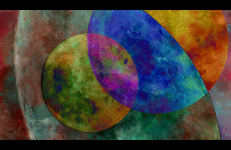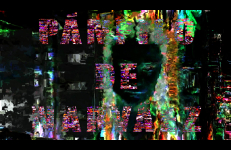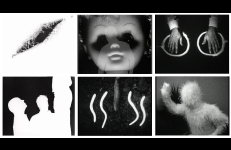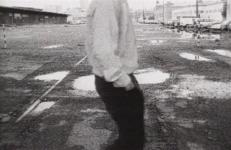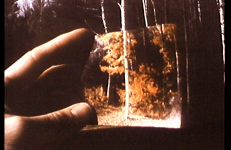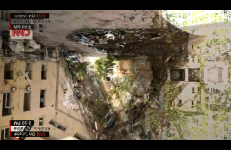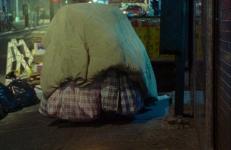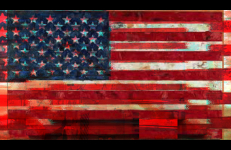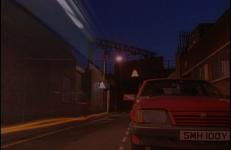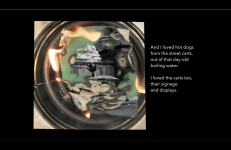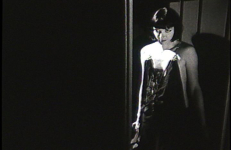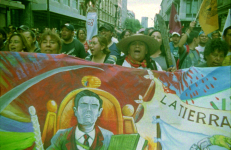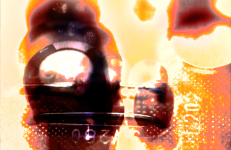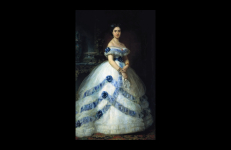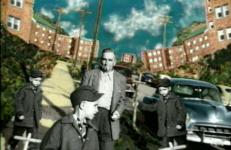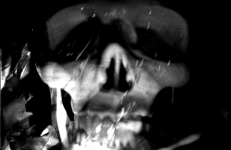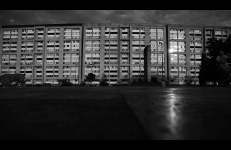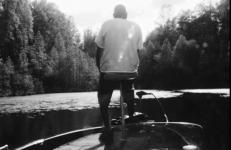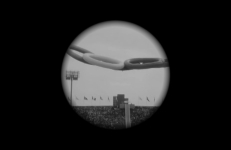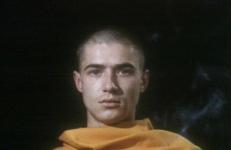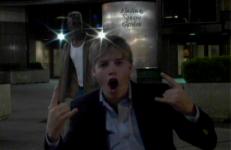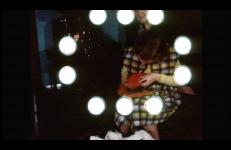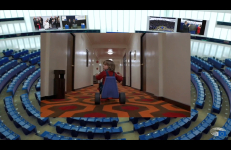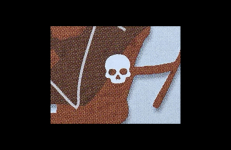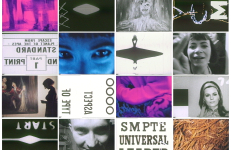In these lunar paths the moon is the celestial body of brilliant colors that crosses with its cyclical and mythical dance the dark space of our present time and in whose dance the moon enters, moves away, approaches and lies on itself in a cycle rhythmic of celestial agitation. These are the shamanic ways of the moon. Part of the Lunar Films series.
Experimental Film
This is the apparition, the ghostly flight over our present time of the infamous conqueror Pánfilo de Narváez. The exterminating angel of our times. Part of the Hauntology and Post-Covid series.
Faced with the possibility of return, the dead consider their next move. Whilst hesitation holds sway at the point where here meets there, others from the non-corporeal realm venture forth… An experimental narrative tale with live action, animation + pathos.
Winner of the Kodak Cinematography Prize at NYUFF.
“This Super-8 jewel from the prodigal Tarragó masterfully considers the state of loneliness and things inbetween.”
–Antimatter
This compilation features 11 of Jem Cohen's collaborations with musicians. Made on 16mm, Super 8 and Video, the works include the music of R.E.M., Gil Shaham and the Orpheus Chamber Orchestra, Void, Elliot Smith, Jonathan Richman, Miracle Legion and Olivier Messiaen.
Nightswimming
In two parts:
One – a residency at the MacDowell Colony in Petersboro, New Hampshire with the seasons passing.
Two – an experiment with green-screen chroma-key and a play between 2-D and 3-D space.
–– Ken Kobland
This work was restored in 2022.
Chance observations of New York's Chinatown, commissioned by the Museum of Chinese in the Americas.
"A sleepwalker's circumnavigation of one of the less homogenized parts of the city."
--Jem Cohen
Part of paraconsistent sequence series.
Nocturne is a 5-minute film shot entirely at night in deserted streets of London. The film attempts to find images of the city that reveal the presence of the past, or the presence of the dead, hinting at a concealed history. The deserted streets around the east end of London and Docklands reflect an echoic city filled with shadows. Nocturne is composed of long static viewpoints, each shot slowly unfolding in time as though by looking long enough the city's secrets will be revealed.
... it's not what it used to be.
a personal album and homage, in my own way, to an influential film ... a closet-cleaning scrapbook of beloved photos and oddities ‐ and the gift of fire.
–– Ken Kobland
This sensualist's dream follows Louise Brooks look-alike Rodney O'Neal Austin on his search for the Beloved. From the cabaret to opium dens and dancing graces this homage to early sound film explores a world teeming with the mysteries of longing and death. Music by Trance Mission and Minnie Pearl Necklace.
Notes for a DejaVu is a paramnesic experience of the images where Jonas Mekas still lives and we can hear him comment on the memory of an imaginary trip to Mexico. This film is shot with an expired 16mm celluloid during a popular protest. This is a movie that remembers. This is a political movie.
This is the arche-fossil and the presence of the decay-image rate of his radioactive nucleus as an omen of interesting times. Part of the Scattered Geology Audiovisual series.
A series of numbers that form infamous years that are uttered in a repetitive pedagogical litany. Ominous dates as a correlate of forgotten apolitical portraits. Portraits of a remembered royalty whose wealth was made possible by infamous times. Political faces accompanied by their corresponding dates. Peaceful figures whose placid portrait rests on the automated civilizational barbarism. This is part of the educational film cycle.
This surreal, free-form autobiography is concerned with childhood and adult rituals, and the longing for meaning and connection during the often wildly absurd events of early life. Obsessive Becoming returns to Reeves’s early exploration of personal narrative forms, poetry, and his interest in creating a more spontaneous and direct fusion between language and video. Words and images of the expectations and disappointments of coming of age break down the boundaries of both mediums.
This is the gaze that is reflected in the dark obsidian mirror.
A voice for which an event impossible to internalize remains distant. An event that in its distance does not cease to make the narration of something that should not take place anywhere foreign. The military massacre against unarmed students in 1968.
Old Cat will eventually and pleasantly get to a destination. Shot in the summer of 2009, in a single take, on a lake in Virginia.
Cast: Chad Bowles, Marcus Bowles.
This title is only available on Broad Daylight and Other Times: Selected Works of Kevin Jerome Everson.
1968 was the opening of the Summer Olympics in Mexico City, ten days after the massacre of students and civilians by military and police on October 2 in the "Plaza de las Tres Culturas, Tlatelolco."
A film about haircuts, clothes, and image/sound relationships.
"This four-minute film explores our response to stereotypes—aural, visual and ideological. Smith signals these stereotypes to the viewer through a chiefly associational system, which deftly manipulates the path of our expectations. The structure is stunningly simple and deceptively subtle. We are taken on a journey from one concrete stereotype to its diametric opposite, as images transform and juxtapose to, ultimately, invert our interpretation of what we see and hear."
—Gary Davis
While out shooting for a different project altogether, I encountered two sleeping men on a Manhattan street. A short time later, I was standing in front of Pennsylvania Train Station with the camera on a tripod, when one of the men suddenly reappeared. He stepped in front of my camera and began to speak, about his path in the U.S. military, from Panama to Afghanistan to Iraq, about his life. I decided to limit the piece to what I shot in that area in those few hours, with one key addition: the text from a classic children's rhyme.
–Jem Cohen
Memory in three acts. A boy opens his presents. Two men open a suitcase stuffed with photographs. An aging actress opens her heart to lost love and ancient rivalries.
A documentary – of sorts – retinted, toned, sped up, slowed down.
Brief and bouncy document of Jennet’s open studios private view, back when she was still mostly a painter.




